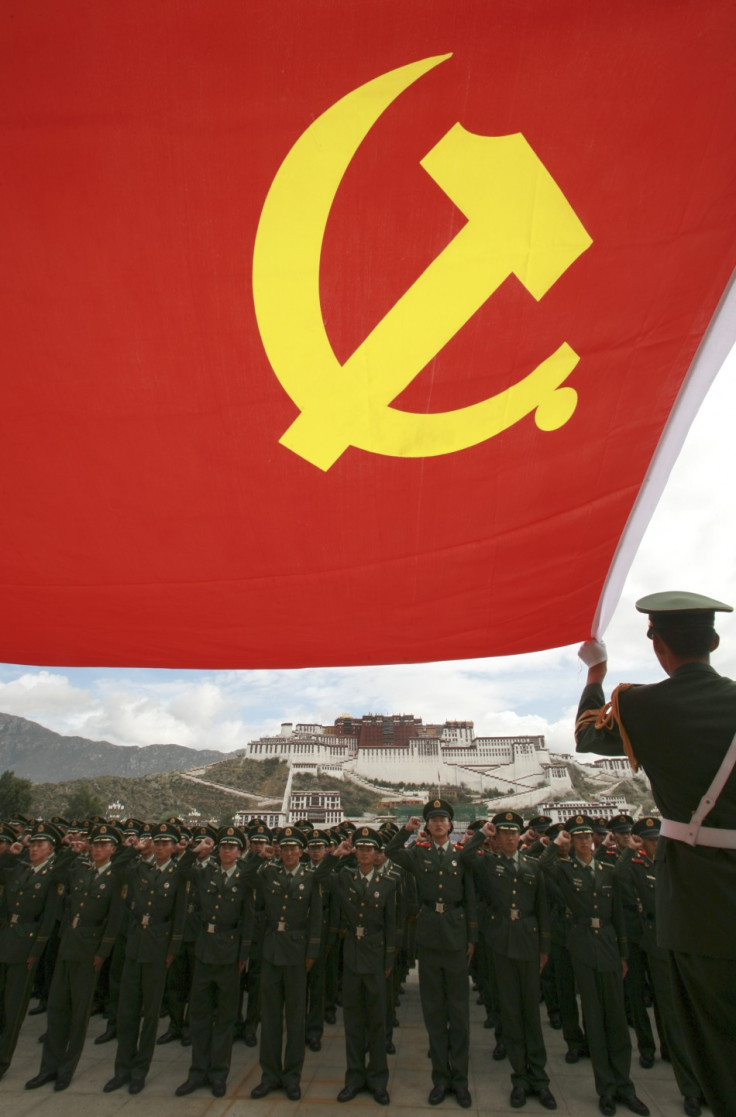Chinese Propaganda Agents Move into Every Tibetan Village

China has dispatched government agents into every village in Tibet as part of an unprecedented surveillance and 'political re-education' programme, according to a recent report.
An army of 21,000 officials scattered into small teams and set up in each of the country's 5,541 villages, with agents in some cases moving into the homes of Tibetans.
According to the report by charity Human Rights Watch (HRW), the "Solidify the Foundations, Benefit the Masses" campaign cost £150 million, or a quarter of Tibet's annual budget.
The officials then attempted to root out supporters of the country's exiled spiritual leader the Dalai Lama, and indoctrinated villagers with the virtues of the communist party and the Chinese state.
One of the focal points of the programme was Taktser, a village of 23,000 people and the birthplace of the 14th and current Dalai Lama, in 1935.
According to the report, agents gave children particular attention.
"Some work teams follow the everyday life of kids - they go to school and play ball with them, and listen to what they talk about, to find out who most influences them," say the reports authors.
"Even your own children can get you into trouble," one villager claimed.
Residents were subjected to long interviews and made to fill out questionnaires, after which they were placed in one of three broad categories: those wanting wealth and a quiet life; those who secretly pray to the Dalai Lama but cause no trouble; and those "who do not have faith in the motherland or the party".
A total of 135 people who fell into the third category were then detained and sent for 45 days of compulsory Maoist "re-education".
"It's hard to see the 'benefit' to Tibetans of thousands of political education sessions, partisan quasi-police force operations, and scrutiny of their political views," HRW's China director Sophie Richardson said.
"In a region where people are already subjected to extraordinary monitoring, this village-level drive, alongside similar efforts directed at towns and monasteries, effectively means that Tibetans cannot avoid state surveillance."
Authorities in Beijing are also stepping up the surveillance of telephone calls and internet communications in Tibet, with China's state-run news agency Xinhua reporting the completion of a programme to register all of Tibet's 2.76 million mobile users and 1.47m internet users by their real names.
A volunteer police force, modelled on the waiwen, or citizen 'stability police', has been set up and surveillance stepped up in Tibet's Buddhist monasteries and temples.
Tibetan opposition to Chinese rule remains strong, and on 11 June, Buddhist nun Wangchen Dolma became the 120<sup>th person to set herself on fire in protest at Beijing rule, dying three days later of her injuries.
Recently Pema Trinley 22, and Chakdoe, 32, were each sentenced to two years in jail for making a music DVD, The Agony of Unhealed Wounds, which refers to the Dalai Lama and protesters' deaths.
The Dalai Lama, 77, was forced into exile as a child after a failed uprising against Chinese rule in 1959.
© Copyright IBTimes 2025. All rights reserved.






















